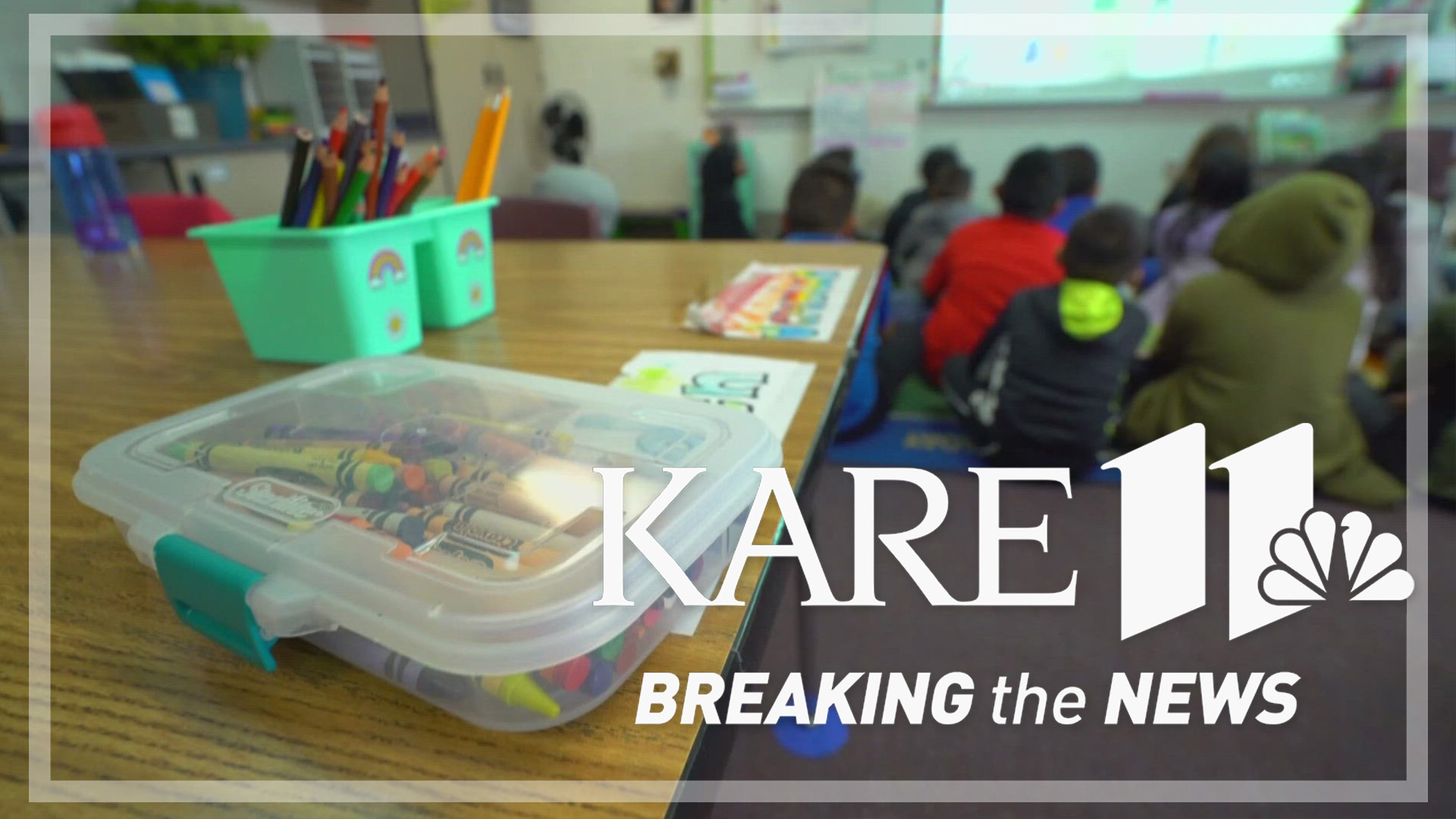ST PAUL, Minn. — The Minnesota House Tuesday night passed a supplemental school funding bill to build on last year's historic investments in school aid. The DFL-led legislation, which passed 68 to 61 along party lines, will send $40 million to schools and teachers to help pay for targeted programs.
"This bill provides our school districts with flexibility and funds innovation, puts more teachers in our schools, keeps more students in our classrooms," Rep. Cheryl Youakim, the Hopkins Democrat who heads the House Education Finance Committee, told reporters.
She said the price tag of the package falls within her committee's budget targets and aligns with Gov. Tim Walz's plan to contain spending in what is considered a non-budget year at the State Capitol.
The package includes money for the literacy curriculum training, something 26,000 teachers have already signed up for statewide. It extends the deadline for them to complete that training, in consideration of the high demand for that program lawmakers set up in 2023 with the READ Act.
"Every child will be screened to see where they are in terms of literacy, and it will provide for intervention," said Rep. Heather Edelson, an Edina Democrat.
"This will be a huge lift, but we will also start to flag where kids need help. It’s a big deal for Minnesota. It’s a big deal for Minnesota kids and it will help our kids tremendously."
The bill also provides for stipends of up to $7,500 to help student teachers to defray the costs of taking a position, which often requires them to give up income from other jobs. The money would flow through colleges.
"The journey is not easy for new educators. It’s rigorous. It’s demanding. It requires a lot of time," said Rep. Mary Frances Clardy of Inver Grove Heights, who is a veteran teacher herself.
"And our supplemental budget will help reduced the financial burden by creating a pilot program. Data will be collected from the student teachers to see if the stipend actually helped them resist the barriers."
There's also funding in the bill to help the schools pay for the cost of substitute teachers who will fill in for teachers taking added training.
The legislation also creates pilot programs at nine districts across the state to help them create innovative approaches to solving absenteeism.
"This session we went to work talking to districts across the state to ask what are they seeing in terms of absenteeism, and what can we do to meet the moment to solve this problem," Rep. Samantha Sencer-Mura of Minneapolis said.
"Our message to Minnesota students is clear: we want you back in the classroom, we want you back in the learning environment and we’re willing to do the work to get you back there."
Republicans spent most of the seven-hour debate offering amendments aimed a removing many of the new rules that were part of the 2023 school funding bill, which boosted school funding by $5.5 billion across a four-year period, including universal school meals, and money to help offset the costs of special education services.
The GOP contingent maintains that districts haven't benefited from that boost in state aid because the bill also created dozens of new policy expectations, or mandates.
"Most of the schools are worse off than they were last year," Rep. Pam Altendorf, a Red Wing Republican, said. "Why? They’ve been crippled by 65 new mandates, which was very disappointing to see when our already in a financial need and now to add additional burdens to them."
Democrats counter that what some call mandates, others call policies.
"Mandate relief sounds great on a bumper sticker but our kids deserve something better than bumper sticker politics," Rep. Youakim told reporters.
"We made serious investments last year, both in funding and the direction we want our state education system to go. Funding and policy go together."
Rep. Altendorf offered an amendment that would stop the expansion of the State Office Building and divert those funds to schools. The project is estimated to cost $500 million, plus $250 million in interest across 30 years if the bonds aren't paid off early.
"My amendment today on the floor is to redirect funding from what we call the palace for politicians, direct it back to our schools locally, for things like roofs. We have a real need locally, and the local taxpayers should not shoulder this burden."
Excavation on the construction site, across the street from the State Capitol, is already well underway.
WATCH MORE ON KARE 11+
Download the free KARE 11+ app for Roku, Fire TV, Apple TV and other smart TV platforms to watch more from KARE 11 anytime! The KARE 11+ app includes live streams of all of KARE 11's newscasts. You'll also find on-demand replays of newscasts; the latest from KARE 11 Investigates, Breaking the News and the Land of 10,000 Stories; exclusive programs like Verify and HeartThreads; and Minnesota sports talk from our partners at Locked On Minnesota.
- Add KARE 11+ on Roku here or by searching for KARE 11 in the Roku Channel Store.
- Add KARE 11+ on Fire TV here or by searching for KARE 11 in the Amazon App Store.
- Learn more about the KARE 11+ app for Apple TV in the Apple App Store.
- Learn more about KARE 11+ here.
Watch more local news:
Watch the latest local news from the Twin Cities and across Minnesota in our YouTube playlist:

